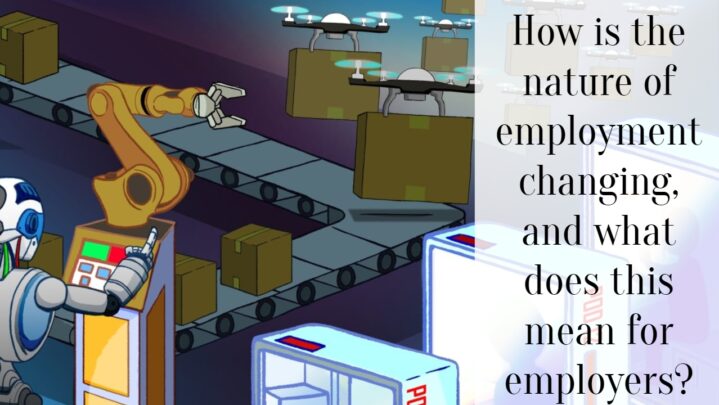Flexible work arrangements: Working remotely and having flexible hours are more prevalent, enabling people to accommodate their work schedules around their personal lives. For workers who value work-life balance, this may be a big advantage. Employers who provide flexible work options can draw in and keep top talent while also enhancing the engagement and well-being of their workforce.
“Gig economy”: The phrase “gig economy” describes temporary, project-based work that is frequently carried out remotely or flexible concerning timing. While it may be a more cost-effective approach for employers to obtain specific expertise, this job may give employees greater autonomy and choice over their work-life balance. It may, however, also provide difficulties in terms of employment security and compensation.
Increased use of technology: Routine jobs are being automated by artificial intelligence in the workplace, freeing up staff members to concentrate on more complex duties. Employers can increase efficiency and maintain competitiveness by adopting new technologies. This may also lead to job displacement because workers need to reskill and upgrade.
The benefits of hiring a diverse workforce are being recognized by employers, which has enhanced the value of inclusion and diversity in the workplace. Diversity in the workplace can generate a more positive work atmosphere, increase productivity and employee engagement, and enhance a company’s reputation as a top employer.
Due to the changing nature of work, workplaces are changing, and businesses must adapt to stay competitive. Future employment patterns will be influenced by the gig economy, increased use of technology, diverse and inclusive workplaces, and flexible work schedules. Employers who make these changes will be in a better position to entice and retain outstanding people, boost morale and productivity among workers, and foster growth.





